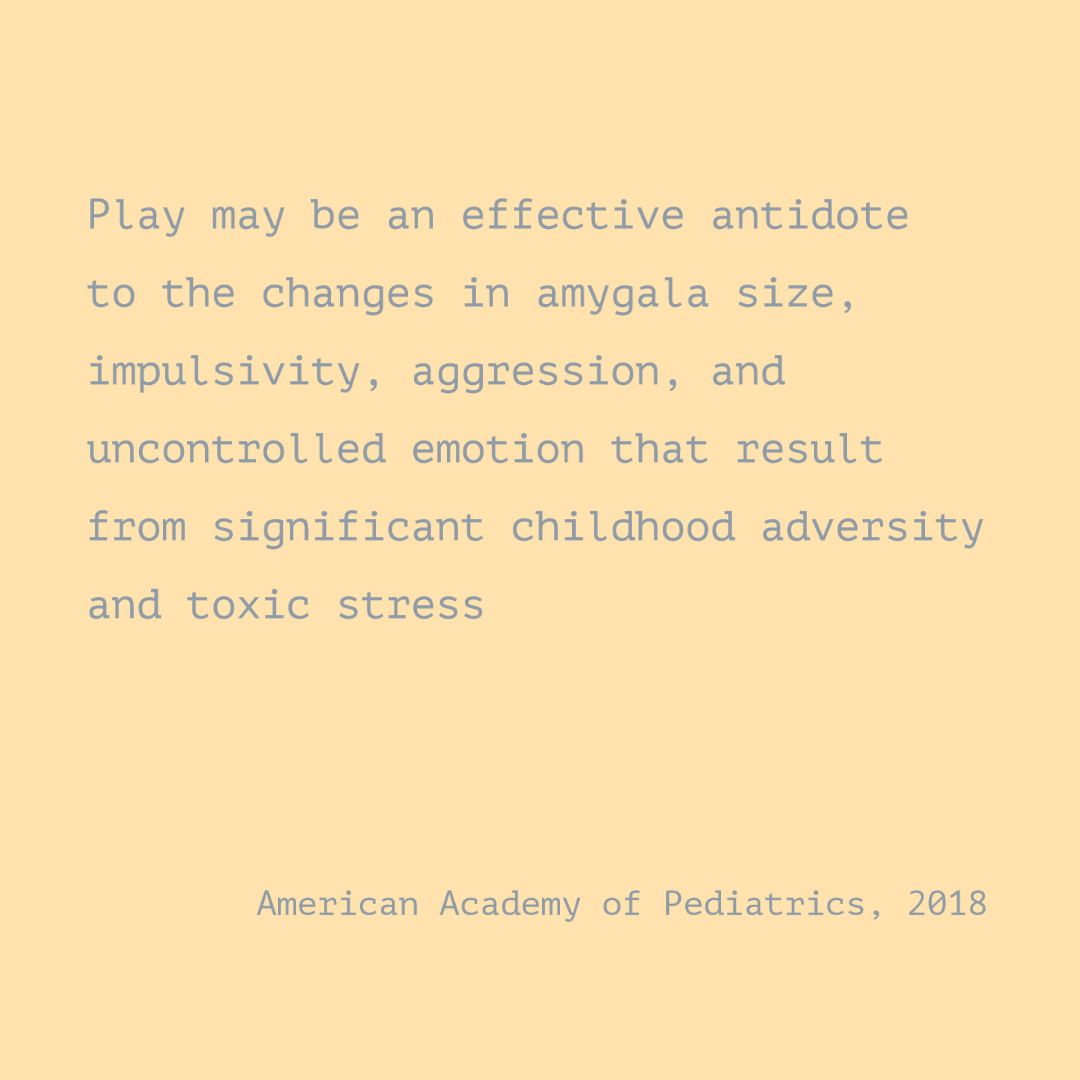No products in the cart.

Play-based learning and children’s stress responses
Play now, more than ever!
If ever there was a reason for play in school, returning to the classroom after a nationwide shutdown due to a global pandemic is it! While play advocates will not need convincing as to the benefits of play on children’s academic and social development, what would seem critical now is the benefits of play on children’s stress responses during the current global challenges.
The American Academy of Pediatrics (2018) noted: “In the presence of childhood adversity, the role of play becomes even more important in that the mutual joy and shared attunement that parents and children can experience during play downregulates the body’s stress response”.
In other words – children having fun and enjoying themselves while engaged in play is an effectiveantidote to the changes the brain experiences when under stress.
Our students will have experienced a range of emotions and information over the period away from school. Many will have loved being home, others not so much. Some will be very aware of the anxiety facing their families, and others blissfully ignorant. However our students return, our responsibility is to ensure we support their emotional needs and allow them an opportunity to feel relaxed, connected, and loved at school. Enabling extended periods of time for play and being in and alongside our children as they play will enable their neural pathways to make healthy connections and lessen the need for many to sit in a stress-response part of their brains.
But what if my students are falling behind academically?
A growing body of research supports the healthy development of executive functioning skills through play and the correlation these skills have to successful academic outcomes. At a time when our children have had an interruption to their schooling, many are calling for the need to have children get back to school so they don’t “fall behind”, and for many to “catch up”. In creating this pressure, the divide between the academics, and learning through play deepens. But the big question here is……fall behind …. what? Catch up to …. What? From what we know, the development of executive function skills is actually the vital bridge children need to the world of
academic success. And these skills are best honed and grown through play.
“Executive function during childhood also predicts important outcomes, like academic performance, health, wealth and criminality, years and even decades later” (American Academy of Pediatrics, 2018).
So, if we want our kids to cope through this interruption to the school year, and continue developing into healthy and happy humans, the answer is to provide increased opportunities for them to play at school.
So how do children play at school under Alert Level 2?
At alert level 2 many teachers at ECE and in the junior school years are concerned with social distancing requirements, the need for hygiene and regular cleaning. Those proficient in these environments will know play does not allow for social distancing, nor does it ensure many play resources that are easily cleaned.
Common sense and regular checking of Public Health guidelines must inform our teaching practices under these circumstances. NOT, shared opinions by those on social media platforms. We recommend those in play-based classrooms in the junior school sector look to the ECE guidelines around managing their environments given the additional public health requirements. These are available on the Ministry of Education website.
Some useful reminders as you look to life under Level 2 in your school setting:
- Children playing at school will still be learning, and will provide you with multiple opportunities to teach and grow their knowledge and skill base
- Routines and rituals are important, as are rules. Support your students to follow these with gentle reminders and natural or logical consequences. This will help their sense of security and allow a gentle transition back to school. Include regular hygiene practices into your daily routines.
- Critically examine the expectations of your students. Don’t get caught up in trying to ‘catch up’ your students to expected levels or benchmarks. This is an unprecedented interruption to the school year. The focus should now be on well-being, health, and building positive relationships with your students. The rest will come.
- Follow the ECE guidelines around preparing your learning environment for play and social distancing expectations. Consider which loose parts are easily cleaned, and which may need an extended holiday for the time being. What could you include in your environment to replace these for the short term?
- Use. Common. Sense. If unsure, check with public health NOT social media.
- Be kind to yourselves – this will take a little getting used to, so do not expect to get everything ‘right’ all the time. One step at a time.
- Maintain relationships and joy as the focus of your day for the short term. This will aid a successful transition for your learners back to school.


